
If Parents Want Their Rights Back They Must End Teacher Union Monopoly
By Masooma Haq
Former President of the Thomas Jefferson Institute Chris Braunlich said teachers’ unions are controlling the education system and have been funding pro-union political candidates, all the way down to school board members, in an effort to retain their power. Braunlich said parents and other concerned citizens must be aware of what teachers’ unions are doing and stop their monopoly, including their control of school boards.
School boards have become a battleground for major cultural issues, including parental rights, critical race theory, racial justice, transgenderism, sex education, gun laws, first amendment rights, misinformation, etc., because school boards can decide policy in all of these areas.
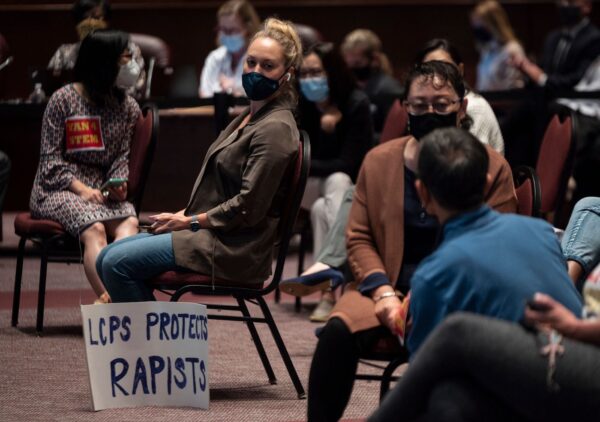
“If you are concerned about what your local school board is doing, you need to be equally concerned with what the political forces backing them are doing,” Braunlich said during a July 6 webinar to discuss the effect of collective bargaining on public schools.
There are approximately 83,000 school board members and 13,000 districts in the United States. Approximately 9,000 school districts across 35 states are holding regular school board elections in 2023, according to Ballotpedia.
Two of the largest teachers’ unions, the National Education Association (NEA), ended the 2022 school year with 2.5 million working members, down 40,107, and the American Federation of Teachers (ATF) had 1.12 million, a loss of 19,078 active in most school districts across the U.S. including Virginia.
Despite lower member numbers, the combined income of NEA and its local affiliates reached close to $1.75 billion in 2020-21, an increase of $49 million (2.9%) from the previous year, of which nearly all is exempt from income and capital gains taxes.
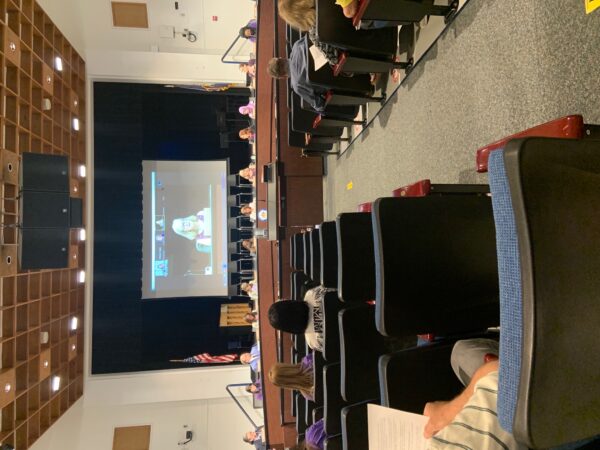
Collective Bargaining
If state laws allow, school boards control whether or not their district can collectively bargain.
School divisions across Virginia are starting to unionize, with the Fairfax County School Board (FCPS) and the Falls Church School Board having approved resolutions allowing for collective bargaining among public school employees in March.
The FCPS school board, in charge of the largest school system in Virginia, adopted a resolution unanimously giving employees the right to collectively bargain. The 22-page resolution gives 28,000 county public school employees the ability to elect a union to negotiate contracts, which would provide standards for pay, conditions, and benefits.
The board’s decision was made possible because three years ago Virginia General Assembly gave jurisdictions the option to grant collective bargaining rights to employees, essentially nullifying a 1977 Virginia Supreme Court ruling originally prevented.
“Until 2021, Virginia had followed the advice of President Franklin D. Roosevelt, in prohibiting public employee collective bargaining precisely because of the political nature of government supervisors being held susceptible to political pressures,” Braunlich said.
During Ralph Northam’s tenure, a bill was passed and signed into law that allowed monopoly contracts, or collective bargaining, said Braunlich. It allowed local governments, counties, cities, and school boards to recognize a particular union as the only entity with whom they will discuss a monopoly union contract.
Virginia’s school system is heading down the same path as New York and California, with collective bargaining and monopoly contracts, “creating an unstoppable political force” that will obstruct parental rights and effective instruction, said Braunlich.
This absolute process gives one union monopoly power to negotiate for all the districts’ teachers, which allows that union to pressure teachers to join, even though the law allows teachers to opt out, said Braunlich.
“Collective bargaining empowers the union … It increases the number of members they’re likely going to be able to get. That increases the union dues they’re likely to collect, and that in turn increases the political power of that union to negotiate again with the school board, which probably received campaign donations from it,” Braunlich told The Epoch Times.
According to the largest union, the AFL-CIO, collective bargaining is the most effective way to solve workers’ problems.
“It is also the best means for raising wages in America. Indeed, through collective bargaining, working people in unions have higher wages, better benefits, and safer workplaces,” according to the AFL-CIO website.
However, critics of teachers’ unions say this model puts teachers’ rights before the parents’ right and student needs, do not advocate for conservative teachers and even target them, and often prevent bad teachers from being fired.
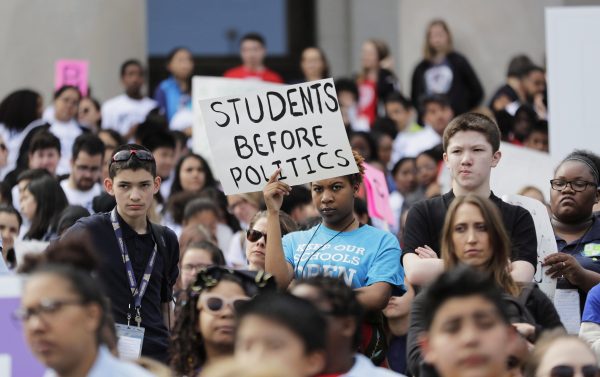
Unions Oppose School Choice
Braunlich said the collective bargaining process has not only had a negative effect on parental rights but also on education choice.
“Because informed and active parents and education choice stand in their way, unions are among the most adamant opponents of increased parental involvement and school choice in any form,” said Braunlich.
“Teachers’ unions are perhaps the most powerful force opposing [or] trying to repeal school choice in every state in the union. The candidates they support have to oppose it. The elected officials they lobby are told to oppose it. And if all else fails, the unions take the issue to court repeatedly,” Braunlich said.
Teachers’ unions control what teachers do and what and how students learn, said Braunlich, citing New York City’s 238-page contract, which Braunlich said is an effort to micro-manage teachers.
The Thomas Jefferson Institute works to advance parental rights in Virginia by creating support for increased education choice and curriculum transparency. The institute conducted a campaign that helped more than 300 teachers leave the unions and take a quarter of a million dollars in dues money with them, said Braunlich.
Unions Fund School Board Elections
Teachers’ unions have been involved in supporting school board candidates for years, while conservative groups have only recently caught on to how important school board positions are.
Teachers’ unions are a major political force, having invested more than $54 million into liberal political candidates in 2022 alone, said Braunlich. “If one looks at their political spending patterns, they’re partners with one political party and one party only.”
Between 2021-2022, the NEA spent about $40 million on political candidates and ATF spent nearly $16 million. The Virginia chapter of the NEA has a political arm called VEA Fund PAC.
“The PAC is the most important thing that we do as members,” VEA member and state Delegate Jeffrey Elkner said in a promotional video for The VEA Fund for Children and Public Education PAC.
“We are very driven to do what’s best for children, and that has always been our goal at the VEA. And so, we are issue-driven and party blind,” VEA member Angela Clevinger, a teacher in Pulaski County, Virginia, said in a promotional video for the VEA PAC.
The president of ATF denies her union’s involvement in school board elections.
“In 12 years as president of AFT, I can count on two hands the ones we were seriously involved in,” Randi Weingarten, president of the American Federation of Teachers, told USA Today.
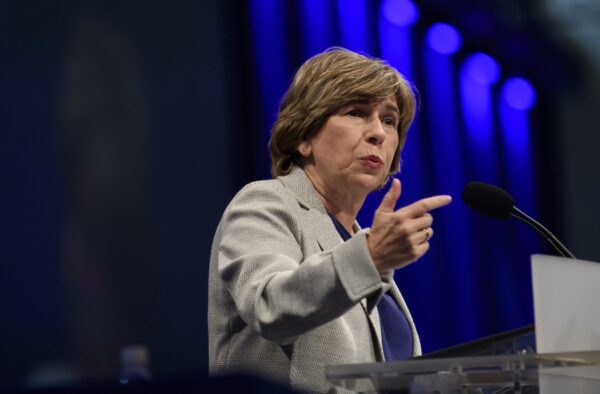
Weingarten’s statement is only true to the extent that AFT has its state and local affiliates endorse and support pro-union candidates for school board races. AFT has affiliates in the largest states and NEA affiliates in all 50, and these local and state affiliates are deeply involved in school board races.
NEA affiliate, California Teachers Association (CTA), illustrates this point. The CTA’s PAC, Association for Better Citizenship, not only backs candidates in state races, but it also gives a good chunk of campaign contributions to local school board candidates.
According to The 74, in 2022, the CTA funded 287 board candidates in 125 school districts—from Los Angeles, with 430,000 students, all the way down to Big Pine, which enrolls 155 kids—providing more than $1.8 million.
In addition, CTA PAC has a rule that it can contribute no more than 65% of the total campaign budget, requiring that local affiliates add the rest, and with the state affiliate giving $1.8 million, the local would give a minimum of $970,000.
A 2022 New York State United Teachers (NYSUT) analysis showed that the union helped elect 295 candidates in districts statewide.
Union-Backed Candidates Win
Roughly 70 percent of union-endorsed school board candidates win their seat, said Braunlich.
In an October 2022 report for the Manhattan Institute (pdf), the author Michael Hartney, Hoover Fellow at Stanford University, found “with one important exception, school board elections continue to be dominated by teachers’ unions.”
Hartney looked at teachers’ union endorsements in three states in 2022, California, New York, and Florida, and found that union-backed candidates for school board won 70% of the time in California, 80% of the time in New York and 64% of the time in Florida.
He found that in California, about one in 10 school boards have educator majorities.
Braunlich said the idea behind the 2018 NYSUT Candidate Pipeline project was to get union members elected to school board positions.
NYSUT recently elected Melinda Person president. Person was formally NYSUT executive director and political director, who, during an April acceptance speech, said, “We need to grow NYSUT’s power because the more powerful we are, the more we can win together.”
“Local unions endorsed 360 candidates in board elections. Eighty-five percent of these candidates were elected to local boards of education across the state, including 75 NYSUT members,” according to a May NYSUT press statement.
A 2018 study conducted by the National School Boards Association (BSBA) found that 24% of school board members surveyed (pdf) were current or former members of a teachers union.
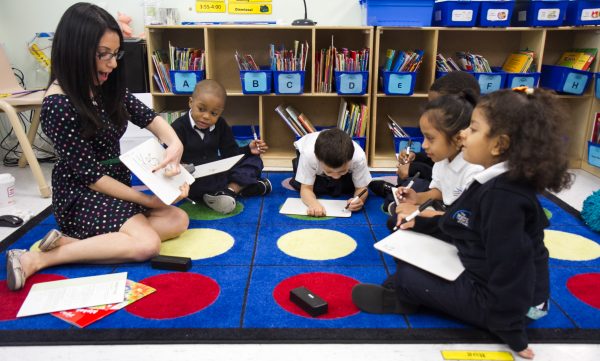
Effect of Union-Backed Board Members
Another report by Education Next, an NGO that researches public school education policy and governance, looked at randomized ballot orders, candidate filings, election records, and school district data and found that having teachers (union members) on school boards affected where district resources are allocated but did not affect student performance.
“Our analysis finds no impact on student achievement from an educator serving on a school board; neither average test scores nor high-school graduation rates improve,” the Education Next report states. “However, outcomes relevant to union priorities advance.”
Compared to a district without teachers on the school boards, charter-school enrollment declines, and the number of charter schools shrinks by about an average of one school per four-year board term. The report also found districts with teachers on the board had about a 2 percent teacher pay increase while support staff remained the same.
“We believe this shows that school boards are an important causal channel through which teachers’ unions can exert influence,” the report states.
The United States spends close to $870 billion annually for public school education, most of which school boards decide how to spend.
In Virginia, Loudoun County’s 2022-2023 budget (pdf) was over $2 billion, and Fairfax County Public School’s 2022 budget was over $3 billion (pdf).
Sherri Story, the chair of the School Board Members Alliance (SBMA), said many school board members do not realize how much power state laws actually give school boards.
“It gives all the power to school board members. It does not empower superintendents to run the entire district however they want,” said Story. She founded SBMA to give conservative teachers a voice as an alternative to the NSBA.
Besides determining where hundreds of millions of dollars are used, these boards have other major responsibilities, including strategic planning, policymaking, hiring the superintendent and assistant superintendent, approving curriculum changes, assessing policy compliance, community advocacy, and setting the school calendar.
School boards also decide teachers’ pay scales, benefits, and work hours by negotiating collective-bargaining agreements with teachers’ unions.
“In California, it took months to renegotiate hundreds of district contracts before there could even be online learning,” said Braunlich.
The head of United Teachers Los Angeles, Cecily Myart-Cruz, said that school closures did not have a lasting negative impact.
“There’s no such thing as learning loss,” Cecily Myart-Cruz told Los Angeles Magazine in a recent interview. Myart-Cruz did agree that students’ math scores might have been affected by virtual learning but said that lockdowns and school closures made them stronger.
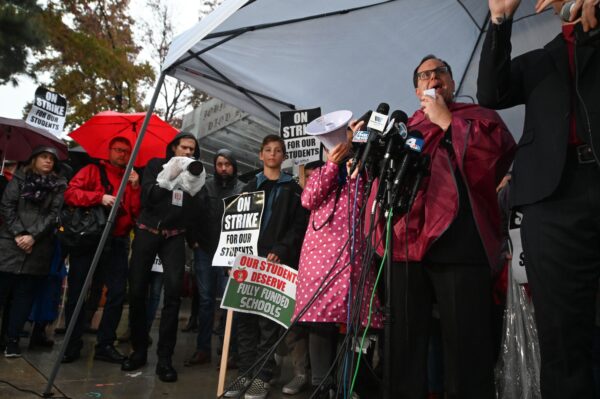
Abuse of Collective Bargaining
“Less than 18 [percent] of the teachers in Richmond Public Schools voted to unionize, but that vote was binding,” Braunlich said.
Currently, many of the proposed rules by localities allow a majority of the small percentage voting to certify a union. But the same rules decided by the same local school board sometimes require that if teachers want to decertify a union, It needs to be a majority of all teachers. For example, if there are 100 teachers and only 30 vote, 16 votes can certify a union, but it will take 51 votes to decertify that union.
Rules for selecting and deselecting unions should be clear, agreed upon by the majority and transparent, said Braunlich.
Teachers’ unions have a monopoly in many states, and they gain power by giving teachers incomplete information and sometimes coercion, said Braunlich. Once they gain power, they put more money and resources into getting officials elected who will support and implement their agenda.
It is not compulsory to join the teachers’ union, but teachers do it for liability insurance, Braunlich said. Many teachers do not know there are other private options for better liability coverage.
Many school districts in Virginia and around the nation are in various phases of unionizing, said Braunlich. Collective bargaining is not only detrimental for teachers but also for police departments and police officers because it makes it much more difficult or impossible to fire bad employees, said Braunlich.
“I tell teachers and police the same thing, union contracts protect all cops, but they also protect bad cops. And when bad cops are protected, it makes good cops look bad, and they don’t deserve that; they deserve better,” said Braunlich.
READ MORE FROM FOR A FREE AMERICA
“Education has become degraded because of the activity of unions that place a priority over the contract, rather than what’s best for kids,” said Braunlich. “And sometimes even to the detriment of teachers.”
In order to prevent school districts from being taken over by unions, parents and other concerned citizens can get involved in school board elections and vote for pro-student, pro-parental rights candidates, said Braunlich.

Let’s make a law that if your on the union payroll or paying into the union you don’t get a seat on the school boards.